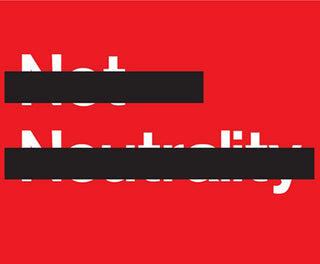Net neutrality is not dead. The battle will continue in courts for a few more years, but the first step towards the ISPs (Internet Service Providers like Verizon, Comcast, and Time Warner) affecting your way around the inter-webs is in place.
Currently, all websites are viewed as the same by your ISP; it’s neutral. A 100mb movie from Netflix should take just as long to download as a 100mb file from DropBox. The difference in download speed has to do with the varying infrastructures of Netflix and DropBox because the net views each website neutrally. But, this past Monday, Verizon challenged the Federal Communications Commission (FCC), and they won.
In the worst case (and likely) scenario you end up paying more. The ISP is no longer just charging you, the consumer, but it can now charge content providers (Netflix and YouTube) a premium for providing timely service to you, the guy paying $64.99 a month for cable internet. Forget about the massive servers YouTube has to host the gallery of shows and movies, or that you have already paid for internet service. The ISPs are now able to regulate how fast this “Malcolm in the Middle” appears across your MacBook screen. If YouTube chooses not to pay this premium to prevent the throttling, then there is a good chance that the cost will be passed on to you. Even worse, it allows websites to pay a premium to improve how quickly their content can get to you. Since the dawn of the internet the quality of content usually determined its visibility on the internet, but what if the better content takes 5 times as long to load because the website chose not to pay the ISP premium? This is the ugly side of dismantling net neutrality, and allowing the ISP a run of things.
Is there any good news from all this? A silver lining in these dark clouds is that the US Court of Appeals has affectively limited the amount of control the FCC has over the internet. Because the FCC can no longer control neutrality, it also means they lack the jurisdiction to label content. Thanks to this ruling, all the dirty nasty stuff on the internet will not come under the scrutiny of the FCC.
This ruling is just the tip of the iceberg, and the FCC can still appeal the decision. But, an appeal seems unlikely when Tom Wheeler, the FCC Chairman, is a former lobbyist for the cable and wireless industry. Yes, you read that right.
Learn More –
http://bgr.com/2014/01/14/net-neutrality-court-ruling/
Get Involved –
Contact Your Congressman – http://www.house.gov/representatives/find/
Sign Some Petitions – https://petitions.whitehouse.gov/petitions
Inform your friends and share this article with others.


